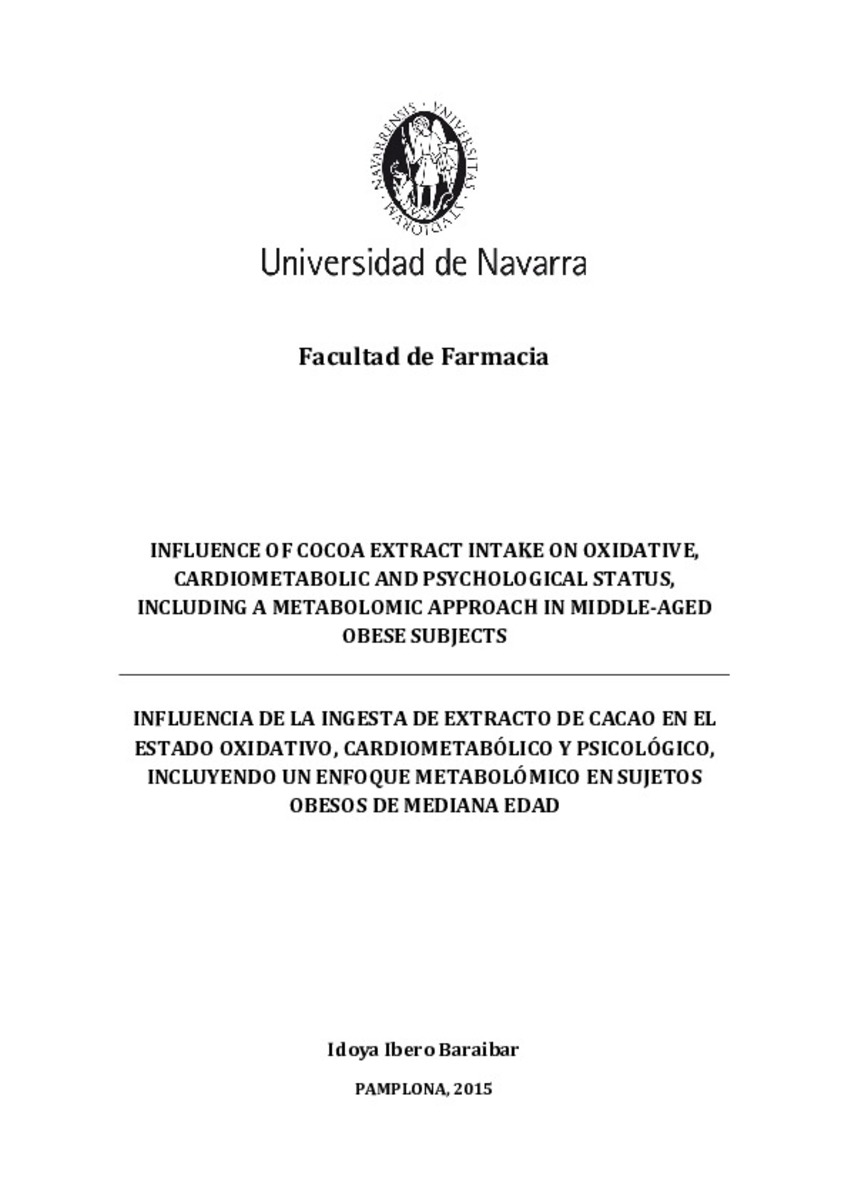Influence of cocoa extract intake on oxidative, cardiometabolic and psycological status, including a metabolomic approach in middle-aged obese subjects
Palabras clave :
Metabolismo energético
Nutrientes
Materias Investigacion::Ciencias de la Salud::Nutrición y dietética
Fecha de publicación :
21-nov-2019
Fecha de la defensa:
18-dic-2015
Cita:
IBERO BARAIBAR, Idoia. “Influence of cocoa extract intake on oxidative, cardiometabolic and psycological status, including a metabolomic approach in middle-aged obese subjects”. Martínez, A. y Zulet, M. A. (dirs.). Tesis doctoral. Universidad de Navarra, Pamplona, 2015.
Aparece en las colecciones:
Estadísticas e impacto
0 citas en

0 citas en

Los ítems de Dadun están protegidos por copyright, con todos los derechos reservados, a menos que se indique lo contrario.







